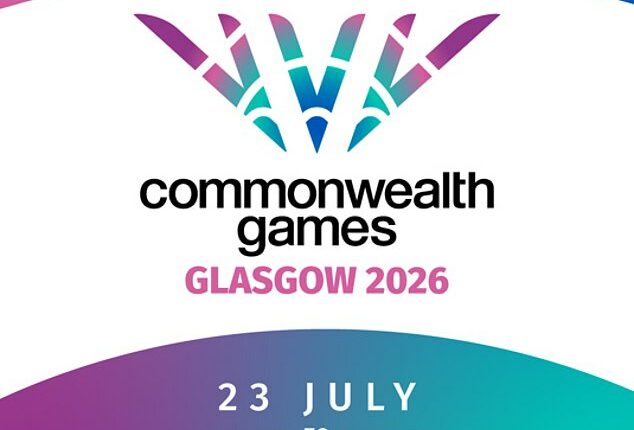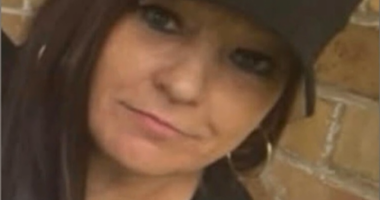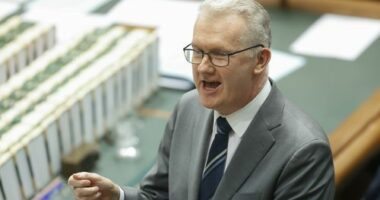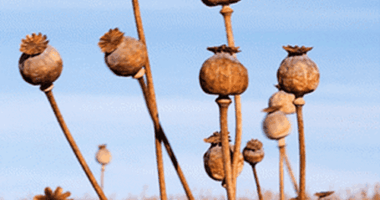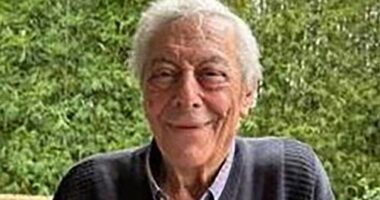Share this @internewscast.com
The upcoming Commonwealth Games in Glasgow will not implement an outright ban on transgender athletes, even as the Olympics may be moving towards such a policy.
According to recent reports, the International Olympic Committee (IOC) is in talks about potentially overhauling their guidelines before the 2028 Olympics in Los Angeles. However, the Commonwealth Games, set to return to Scotland next summer in a more streamlined format, will continue to allow the sports’ individual governing bodies to make decisions on transgender participation. This means transgender athletes may still compete alongside their cisgender counterparts.
The topic of transgender athletes in the Commonwealth Games gained significant attention in 2018 when transgender weightlifter Laurel Hubbard took part in the women’s +90kg category. Representing New Zealand, Hubbard led the snatch event but had to withdraw due to a severe elbow injury. She had met the eligibility criteria set by both the International Weightlifting Federation and the Commonwealth Games Federation at the time.
The Commonwealth Games’ decision to maintain its current stance on transgender athletes stands in stark contrast to potential changes being considered by the IOC.
Currently, Olympic sports federations make independent decisions on the participation of transgender athletes, but this policy could be revised for the 2028 Games.
At present, individual Federations have the power to decide if transgender athletes can compete in Olympic competitions, but this is likely to change ahead of the 2028 Games.

The Commonwealth Games are returning to Glasgow next summer
A potential move away from current IOC policy had been mooted previously by president Kirsty Coventry as part of her election campaign, when she insisted upon the need to ‘work with federations, medical teams and experts to find a solution that protects the female category, without excluding anyone’.
This appears to have gathered momentum, with a science-based review around trans and DSD issues presented to the IOC commission last week in Lausanne.
The IOC insisted ‘no decisions’ on any ban had yet been taken, but admitted the working group set up by Coventry was ‘continuing its discussion on this topic’.
In a statement to Daily Mail Sport, the IOC said: ‘An update was given by the IOC’s director of health, medical and science to the IOC members last week during the IOC commission meeting. The working group is continuing its discussion on this topic and no decisions have been taken yet.’
Whether Commonwealth Sport will now choose to look at its own policy remains to be seen, but an all-out ban by the IOC could have a major impact on the eligibility of athletes for future Commonwealth Games.
Many of the ten sports involved in Glasgow 2026 have already banned transgender athletes from competing in female categories at major competitions. These include swimming, cycling, athletics, netball and boxing. Some other sports, however, such as bowls and 3×3 basketball, are more inclined to align with IOC guidelines. Any update to these could therefore prompt a major shift for sports which have previously been open to transgender athletes.
As it stands, Commonwealth Sport’s Statement on Human Rights fully endorses the IOC Framework on Fairness, Inclusion and Non-discrimination on the basis of gender identity and sex. This, it stipulates, has ‘inclusion, fairness, non-discrimination and the prevention of harm as key principles’.
It states the need for ‘everyone, irrespective of their gender identity or sex variations’, to be able to practise sport in a ‘safe, harassment-free environment that recognises and respects their needs and identities, and the interests of everyone — particularly athletes at elite level — to participate in fair competitions where no participant has an unfair and disproportionate advantage over the rest. The principles contained in the Framework are aimed at ensuring that competition in each of these categories is fair and safe, and that athletes are not excluded solely on the basis of their transgender identity or sex variations.’
Last year, a debate in Holyrood called on the Scottish Government to ensure trans athletes could not compete in female categories at the Glasgow Games, with MSPs raising fears about the safety of female athletes.
Conservative MSP Tess White said the ‘so-called inclusion’ for transgender athletes was ‘leading to the exclusion of women from sport’, insisting that ‘for every male in the female category, a female is excluded’.
Maggie Chapman of the Scottish Greens accused White of spreading ‘toxic narratives’ which were ‘deeply damaging to both trans and cisgender women and girls in sport and in our communities’.
